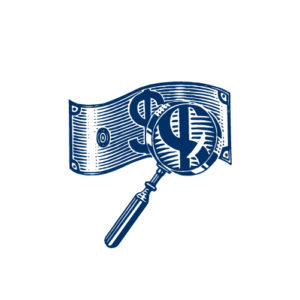Details Are Part of Our Difference
Embracing the Evidence at Anheuser-Busch – Mid 1980s
529 Best Practices
David Booth on How to Choose an Advisor
The One Minute Audio Clip You Need to Hear
Tag: Planning
SECURE Act 2.0 and What it Means for You

As most of us were celebrating the holiday season, a significant piece of legislation passed that, in one way or another, impacted every person reading this. We’ve tried to boil down the 100+ pages to these highlights:
Required Minimum Distributions: The age at which required minimum distributions (RMDs) begin was pushed back to age 73 for individuals born between 1951-1959 and age 75 for those born after 1960, allowing for additional tax deferrals for many.
529 Plan Changes: Beginning in 2024, some individuals can move money from a 529 plan directly to a Roth IRA. This can be incredibly impactful if you set up a 529 years ago and the beneficiary finished college (or didn’t attend college) without completely exhausting the funds.
Retirement Plan Changes: Beginning in 2025, catch-up contributions will be indexed to inflation, ultimately allowing for more significant retirement vehicle savings. Additionally, matching contributions from employers can now be made to Roth accounts.
Student Loan Debt: Starting in 2024, employers can “match” employee student loan payments by contributing to a retirement account for the employee.
Please get in touch with us if you’d like to discuss any of the above information and see how it may impact your specific situation.
Hill Investment Group is a registered investment adviser. Registration of an Investment Advisor does not imply any level of skill or training. This information is educational and does not intend to make an offer for the sale of any specific securities, investments, or strategies. Investments involve risk and, past performance is not indicative of future performance. Consult with a qualified financial adviser before implementing any investment strategy.
Time for a Check-Up?

If you are a Hill Investment Group client, you’re used to our team managing and reviewing your investments and allocation regularly. If you don’t work with us yet, let me ask you when the last time you had a fresh set of eyes review your investment portfolio was? If it’s been more than 5 years, then it’s time for an objective check-up.
Why? Too many investors are overpaying for underperforming investments. Or people are heavily concentrated in just a few companies. Or they’ve never rebalanced and are taking on more risk than they originally intended.
Recently, we talked to one family paying over 2.5% annually on a mutual fund. By repositioning to a less expensive and more globally diversified ETF, we lowered their fees by 2%. That means they save $20,000 a year in fees for every $1 million invested!
The best part of a check-up? It’s complimentary. And you get the eyes and attention of our 3X engineer, Harvard MBA, former Dimensional portfolio manager, CIO Matt Zenz analyzing your holdings and providing transparency into your investments. What’s stopping you? Click here to find a time to chat.
No Tipping on Taxes

Much like people scramble to shed a few pounds before summer vacation, it’s not uncommon to see people frantically searching for ways to minimize their taxes due as April looms. Inevitably, when the vacation ends or tax season is over, many of the procrastinators look back despondently and think, I could have done better.
This pattern appeared again recently, as I heard steady chatter from investors who ended up paying more taxes than they had anticipated. But could it have been possible for them to save themselves from that unpleasant surprise (and spare a good chunk of change in the process)? You bet—if only they had been planning all year. But don’t just take our word for it. This sketch by our friend Carl Richards sums it up perfectly.
There are, of course, facets of wealth management that lie outside the realm of our control. At first, taxes would seem to fall into that category. Truthfully, though, there are steps all investors can take to minimize their taxes due. But planning can’t wait until the last minute.
Moving forward, here are four best practices to tame your taxes before April.
Tax-Loss Harvesting: Those familiar with tax-loss harvesting may assume that losses are best harvested in April, when taxes are top of mind. In reality, tax-loss harvests can be utilized whenever market conditions and the investor’s best interests warrant it.
Enroll in Tax-Favored Accounts: Examples of tax-favored accounts include IRAs, Roth IRAs, 529 plans, and Healthcare Savings Accounts (HSAs). Opening these accounts as appropriate can keep a lid on your taxes when April rolls around.
Asset Location: To put it simply: minimizing a portfolio’s overall taxes due entails locating the most tax-efficient holdings in taxable accounts and the least tax-efficient holdings in tax-deferred or tax-free accounts.
For example, income from real estate investment trusts (REITs) are best-suited for an IRA where it won’t be taxed until retirement. Alternatively, mutual funds, ETFs, and stocks are best-suited for taxable investment accounts since capital gains taxes are generally lower than typical income taxes.
Tax-Wise Charitable Giving: In addition to helping a cause you believe in, charitable giving is also favorable for optimizing your taxes. Specifically, opening a Donor Advised Fund can enable investors to avoid capital gains tax on their securities and deduct the total value of the contribution from their federal income taxes. Appreciated long-term investments are the ideal asset to contribute to a Donor Advised Fund.
Do you want to get ahead of the curve in 2020 with these tax-planning strategies? I’m happy to walk you through them in detail. Schedule a quick call with me.

